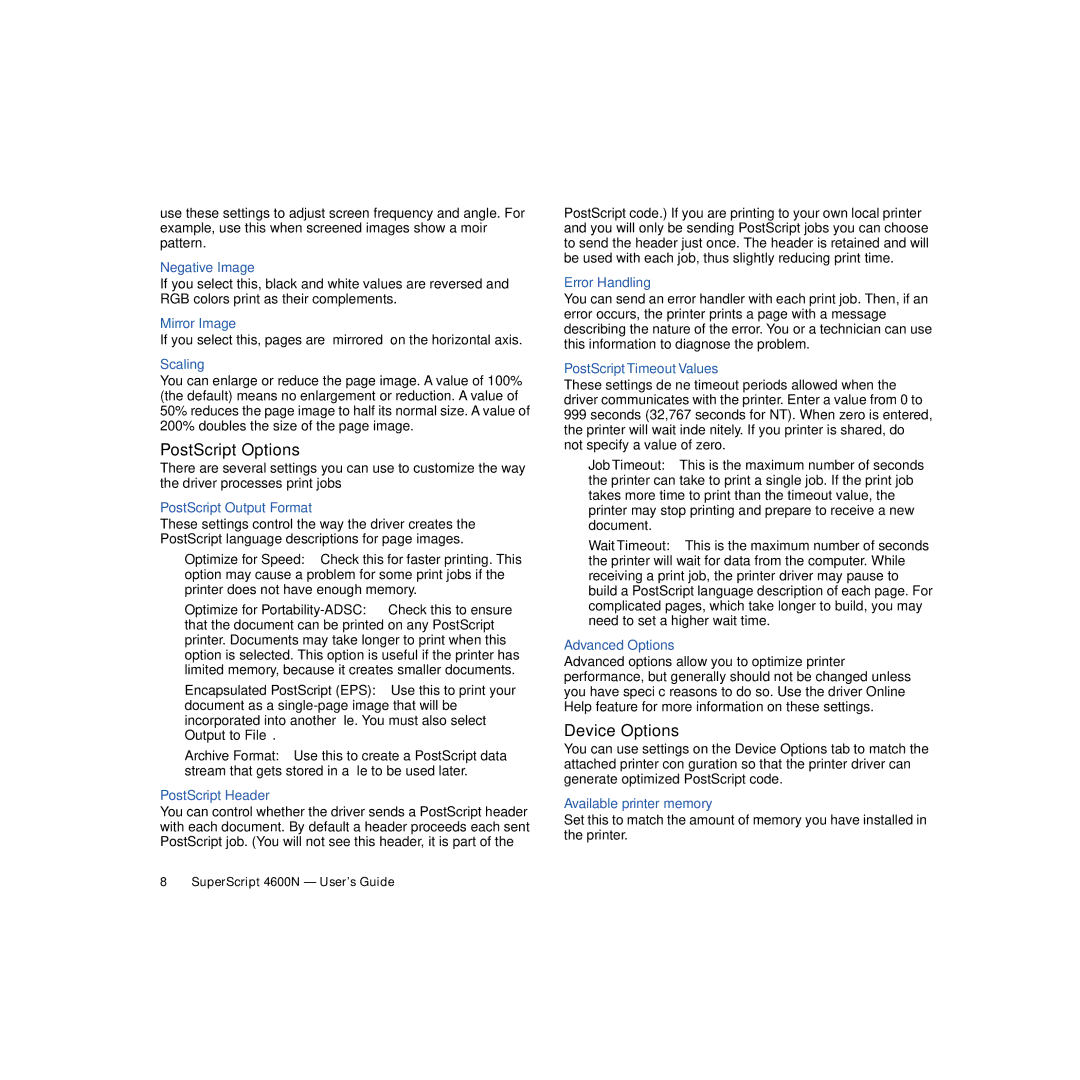use these settings to adjust screen frequency and angle. For example, use this when screened images show a moiré pattern.
Negative Image
If you select this, black and white values are reversed and RGB colors print as their complements.
Mirror Image
If you select this, pages are “mirrored” on the horizontal axis.
Scaling
You can enlarge or reduce the page image. A value of 100% (the default) means no enlargement or reduction. A value of 50% reduces the page image to half its normal size. A value of 200% doubles the size of the page image.
PostScript Options
There are several settings you can use to customize the way the driver processes print jobs
PostScript Output Format
These settings control the way the driver creates the PostScript language descriptions for page images.
Optimize for Speed: Check this for faster printing. This option may cause a problem for some print jobs if the printer does not have enough memory.
Optimize for
Encapsulated PostScript (EPS): Use this to print your document as a
Archive Format: Use this to create a PostScript data stream that gets stored in a file to be used later.
PostScript Header
You can control whether the driver sends a PostScript header with each document. By default a header proceeds each sent PostScript job. (You will not see this header, it is part of the
PostScript code.) If you are printing to your own local printer and you will only be sending PostScript jobs you can choose to send the header just once. The header is retained and will be used with each job, thus slightly reducing print time.
Error Handling
You can send an error handler with each print job. Then, if an error occurs, the printer prints a page with a message describing the nature of the error. You or a technician can use this information to diagnose the problem.
PostScript Timeout Values
These settings define timeout periods allowed when the driver communicates with the printer. Enter a value from 0 to 999 seconds (32,767 seconds for NT). When zero is entered, the printer will wait indefinitely. If you printer is shared, do not specify a value of zero.
Job Timeout: This is the maximum number of seconds the printer can take to print a single job. If the print job takes more time to print than the timeout value, the printer may stop printing and prepare to receive a new document.
Wait Timeout: This is the maximum number of seconds the printer will wait for data from the computer. While receiving a print job, the printer driver may pause to build a PostScript language description of each page. For complicated pages, which take longer to build, you may need to set a higher wait time.
Advanced Options
Advanced options allow you to optimize printer performance, but generally should not be changed unless you have specific reasons to do so. Use the driver Online Help feature for more information on these settings.
Device Options
You can use settings on the Device Options tab to match the attached printer configuration so that the printer driver can generate optimized PostScript code.
Available printer memory
Set this to match the amount of memory you have installed in the printer.
8 SuperScript 4600N — User’s Guide
